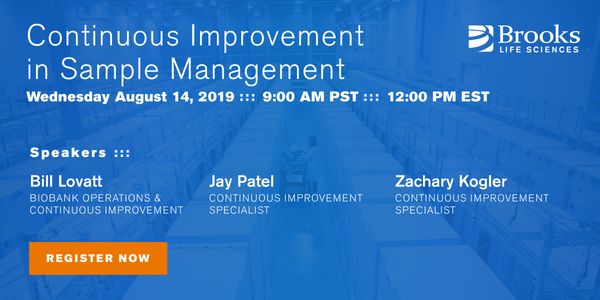Bioethics
Bioethics: an activity; it is a shared, reflective examination of ethical issues in health care, health science, and health policy. These fields have always had ethical standards, of course, handed down within each profession, and often without question. About forty years ago, however, it became obvious that we needed a more public, and more critical, discussion of these standards.
-
JAN 16, 2024 | 8:00 AMThe clinical interpretation of genetic testing results remains one of the most significant hurdles in effectively applying genomics in modern medicine. Errors in variant interpretation, whet...OCT 20, 2022 | 2:00 PMDate: October 20, 2022 Time: 6:00am (PDT), 9:00am (EDT), 3:00pm (CET) Many laboratories around the world have adopted expanded diagnostic testing capabilities to address the coronavirus pan...Speaker: Mara G. Aspinall , Michael Donovan, PhD, JD , Marilyn Owens, PhD, MBASponsored By: Thermo Fisher ScientificPatients with implanted neural devices offer researchers unique opportunities to study the basic workings of the human brain. This is made possible by patients undergoing epilepsy monitoring...
JAN 27, 2021 | 9:00 AM
DATE: January 27, 2021 TIME: 9am PST Well-timed interaction of correctly functioning maternal immune cells is essential to facilitate healthy placenta formation, as the uterine immune enviro...
NOV 05, 2020 | 7:00 AM
DATE: Date needed, 2020 TIME: Time needed Exosomes are a population of naturally occurring mobile, membrane-limited, 30 – 100 nm in diameter, extracellular vesicles containing a large...
Speaker:
Jorge Escobar
, Aurélie Tacheny
APR 07, 2020 | 8:00 AM
DATE: April 7, 2020 TIME: 8:00am PT, 11:00am ET This webinar sets out to establish why quality control is key to robust, reliable, reproducible science. We will look at best practice criteri...
Well-documented as a botanical medicine for over 5,000 years, the discovery of endogenous cannabinoid receptors and evidence-based reports indicating the efficacy of medical cannabis for tre...
Early phase clinical trials investigating novel applications of neural devices, such as deep brain stimulation (DBS) devices, pose ethical challenge during the recruitment of human subjects...
While CRISPR-Cas9 has dominated the science headlines in recent years, there has been a broad social and moral consensus that it is too soon to move to clinical use of genome editing in human...
AUG 14, 2019 | 9:00 AM
DATE: August 14, 2019TIME: 9:00am PT. 12:00pm ET Implementation of Lean Methodology in Biobanking Operations to standardize sample management processes is effective. Each proce...
The exponential advents of advances in techniques and types of molecular diagnostic testing, and modifying strategies for these tests, are encouraging; but these evolutions simultaneously con...
Sexually transmitted diseases remain a major global public health burden despite the availability of effective prevention strategies to diagnose and treat bacterial STDs. Concerning tre...
FEB 01, 2018 | 12:00 AM
Pluripotent stem cells can reproduce indefinitely and develop into any cell type in the body. We are putting pluripotent stem cells to use, for a neuron replacement therapy for Parkinso...
The Alliance for Regenerative Medicine (ARM) is the preeminent global advocate for regenerative and advanced therapies. ARM fosters research, development, investment and commercialization of ...
Speaker:
Michael Werner
, Morrie Ruffin, PhD
Presented at: 4th Annual 24 Hours of Stem Cells™ virtual event
Most discussions about pluripotent stem cells center around their promise for regenerative medicine. The most remarkable quality of these cells is their ability to turn into all of the ...
























